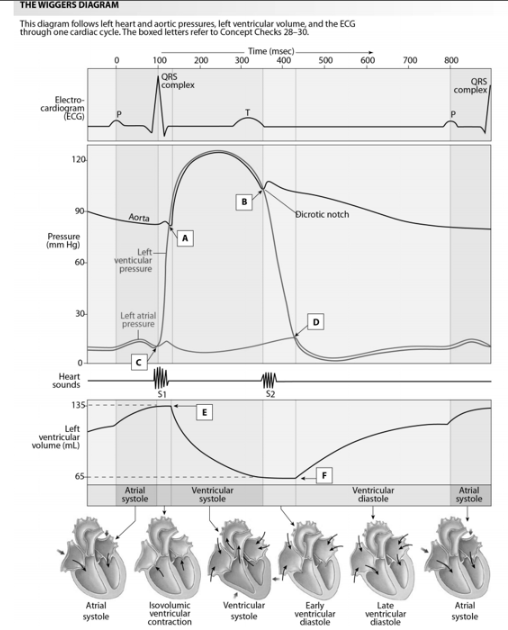Matching
A) Sex-linked inheritance
B) Polygenic inheritance
C) Dominant-recessive inheritance
D) Multiple-allele inheritance
E) Incomplete dominance
14) The dominant gene is expressed when present; the recessive gene is expressed only in the absence of the dominant gene.
15) The heterozygote has a phenotype intermediate between those of the homozygous dominant and homozygous recessive.
16) Inheritance of the ABO blood group type is an example of this type of inheritance.
17) Inheritance that results in continuous or qualitative phenotypic variations between two extremes; an example is skin color.
18) Inherited traits determined by genes on the X or Y chromosomes.
14) C 15) E 16) D 17) B 18) A
You might also like to view...
Using the figure below (Fig. 14.18 from your text), calculate the following values:

A) Heart rate
B) Stroke volume
C) Cardiac output
D) Mean Arterial PressureWhat will be an ideal response?
Which of the following is true?
A) Much of the genome does not encode proteins. B) An amino acid encodes a gene. C) The genome consists of entirely protein-encoding genes. D) DNA has five types of nucleotide bases.
Which statement best describes the function of albumins?
A) They aid in the structural form of the erythrocyte. B) They transport lipids, playing a role in clotting and defending the body against foreign substances. C) They provide the nutrients needed to replicate erythrocytes. D) They primarily affect the movement of fluid into capillaries by creating an osmotic gradient. E) They are the key substance in the formation of blood clots.
Which of the following inhibits COX3 in the brain, which results in pain and fever reduction?
A. Ibuprofen (Motrin) B. Acetaminophen (Tylenol) C. Aspirin D. All of the choices are correct.